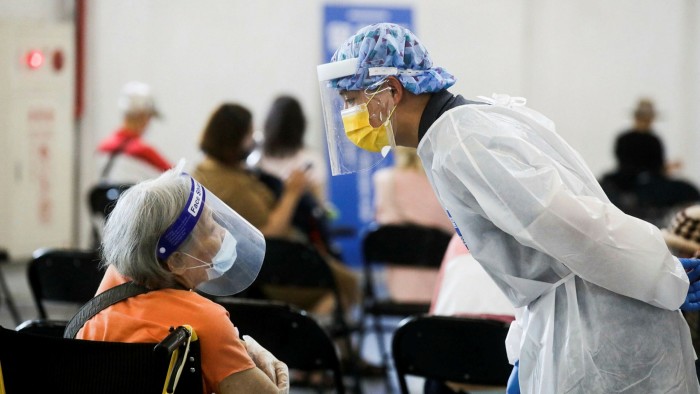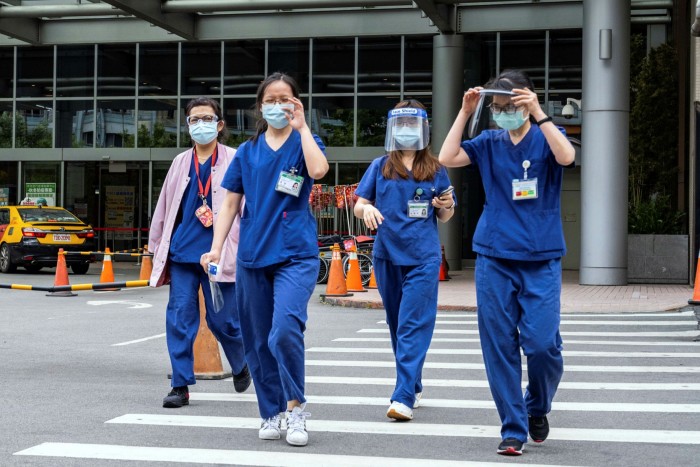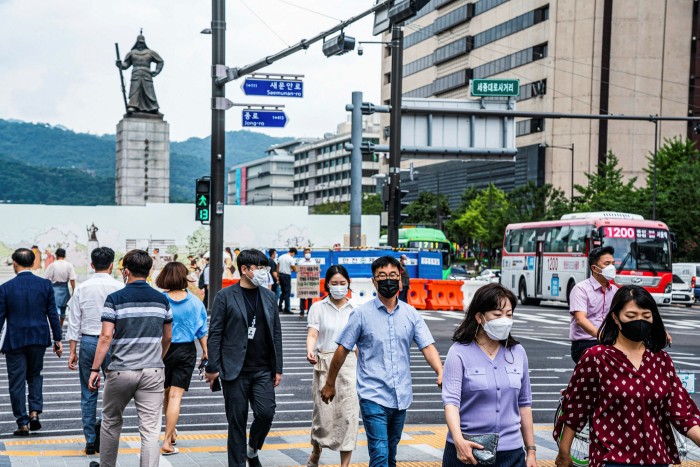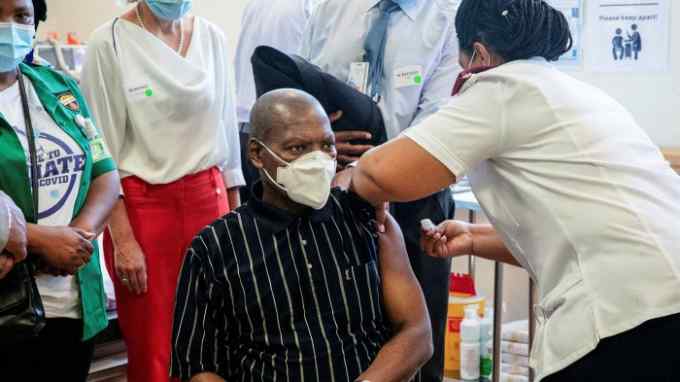How Covid wrongfooted the health experts

Roula Khalaf, Editor of the FT, selects her favourite stories in this weekly newsletter.
The British may fetishise their National Health Service and the Americans their healthcare innovations and star doctors, but — when seen through the lens of coronavirus — other countries, from Taiwan to Norway, have served their citizens’ health better.
As policymakers reflect on the lessons of Covid-19, many assumptions have been overthrown on the best ways to improve the delivery of healthcare in general — and to prepare for pandemics, in particular. Metrics once seen as credible predictors of performance have proved inadequate.
Since 2005, for example, the World Health Organization has led a Joint External Evaluation to analyse countries’ pandemic preparations, in line with the guidance of the International Health Regulations.
And in 2019, the Global Health Security Index — overseen by the Nuclear Threat Initiative and the Johns Hopkins Center for Health Security, advised by 21 international experts — crunched 140 questions about each of 195 countries to assess which were best prepared for pandemics.
The US and the UK scored very highly in both exercises, yet that counted for little when coronavirus struck. The two countries have experienced among the greatest cumulative totals of “excess deaths” per million linked to Covid-19 and its spillover effects on other medical conditions. Nations that performed far better include Taiwan, South Korea and the Philippines.

Hans Kluge, the WHO’s regional director for Europe, who last month released the findings of a Pan-European Commission on Health & Sustainable Development, says: “The Global Health Security Index didn’t reflect reality, and the health systems deemed very strong in the Joint External Evaluation got overwhelmed. This is the time to rethink preparedness.”
One caveat, he says, is that the world is still in the midst of a fast-changing pandemic. At different moments, different countries have appeared to be more or less vulnerable to coronavirus, and more or less effective in their responses.
India and a number of African nations, for example, were initially shielded from widespread hospitalisations, but later struggled with infection by newer virus variants. Japan performed well with the use of firm infection control, including face masks, but has been slower to adopt vaccination. Israel rapidly vaccinated and eased lockdowns and has since been set back by a resurgence in cases.
Chris Murray, head of the Institute for Health Metrics and Evaluation, a research centre in Seattle, says: “All our prior thinking on how to protect people needs to change. The past data on pandemic preparation measures turns out to have not been predictive.”
He says the best interventions to mitigate the pandemic included strict and rapid border closures supported by quarantine — which helped Taiwan, Singapore, South Korea and Hong Kong perform well. Face masks and lockdowns were also useful, alongside swift and effective arrangements for testing, tracking and isolating infected people.

Pivotal to those countries’ relative success was a mixture of societal pressure, trust in government and experience of past disease outbreaks — notably Sars in 2002-04. Rob Yates, director of the global health programme at Chatham House, the international affairs think-tank, also highlights the importance of political competency. “Leadership is one thing that often gets neglected,” he says.
To protect against future pandemics, Bill Gates, the businessman and philanthropist, has called for the creation of a 3,000-strong international team of “first responders” specialising in infectious diseases. He also argues that more investment is required to develop emerging-disease detection systems, coupled with the use of technologies, such as mRNA vaccines, that can rapidly scale up production.
“You need to practise and keep capacity,” he says. “Don’t do small things . . . when the big one comes along, you are not prepared.”
Pandemic preparedness, however, is only one aspect of healthcare, and many cautions against using it as a proxy for the quality of national health systems. Health is a complex field, and any putative yardsticks need handling with care.
Nonetheless, one of the biggest factors that correlated with high mortality across countries during the pandemic was citizens’ underlying health conditions. Countries with higher rates of diabetes and obesity were more likely to suffer high numbers of Covid-19 deaths.
That suggests factors including universal health coverage and high-quality primary care can provide protection, alongside efforts to channel resources towards prevention — through, say, incentives for exercise and restrictions on smoking or unhealthy food.
These broader structural features may explain why the regular survey carried out by the Commonwealth Fund, a US-based healthcare foundation, has proved a relatively good predictor of coronavirus excess deaths. It ranks 11 rich countries’ healthcare services by focusing on systemic factors: access to care, the care process, administrative efficiency, equity and healthcare outcomes.
In the latest iteration, the US ranks bottom and the UK fourth. Norway has the best system, followed by the Netherlands and Australia. All other countries spend far less as a share of GDP on health than the US, suggesting that social policy and health system structures are more important than resources alone.
“In Norway, we have a strong welfare state and social security system,” says John-Arne Rottingen, Norway’s global health ambassador. He attributes his country’s lower coronavirus-linked mortality to a lower burden of chronic disease, as well as low population densities and — compared with its initially vaunted neighbour Sweden — a better nursing and elderly care system.
Jessica Bell, who is overseeing a fresh version of the Global Health Security index, due out later this year, acknowledges the importance of such factors in determining the strength and resilience of health systems. “What we saw with Covid was an outsize influence of political leadership, trust in government and the socio-economic status of a country,” she says. Those will continue to apply long after Covid has subsided.

Comments